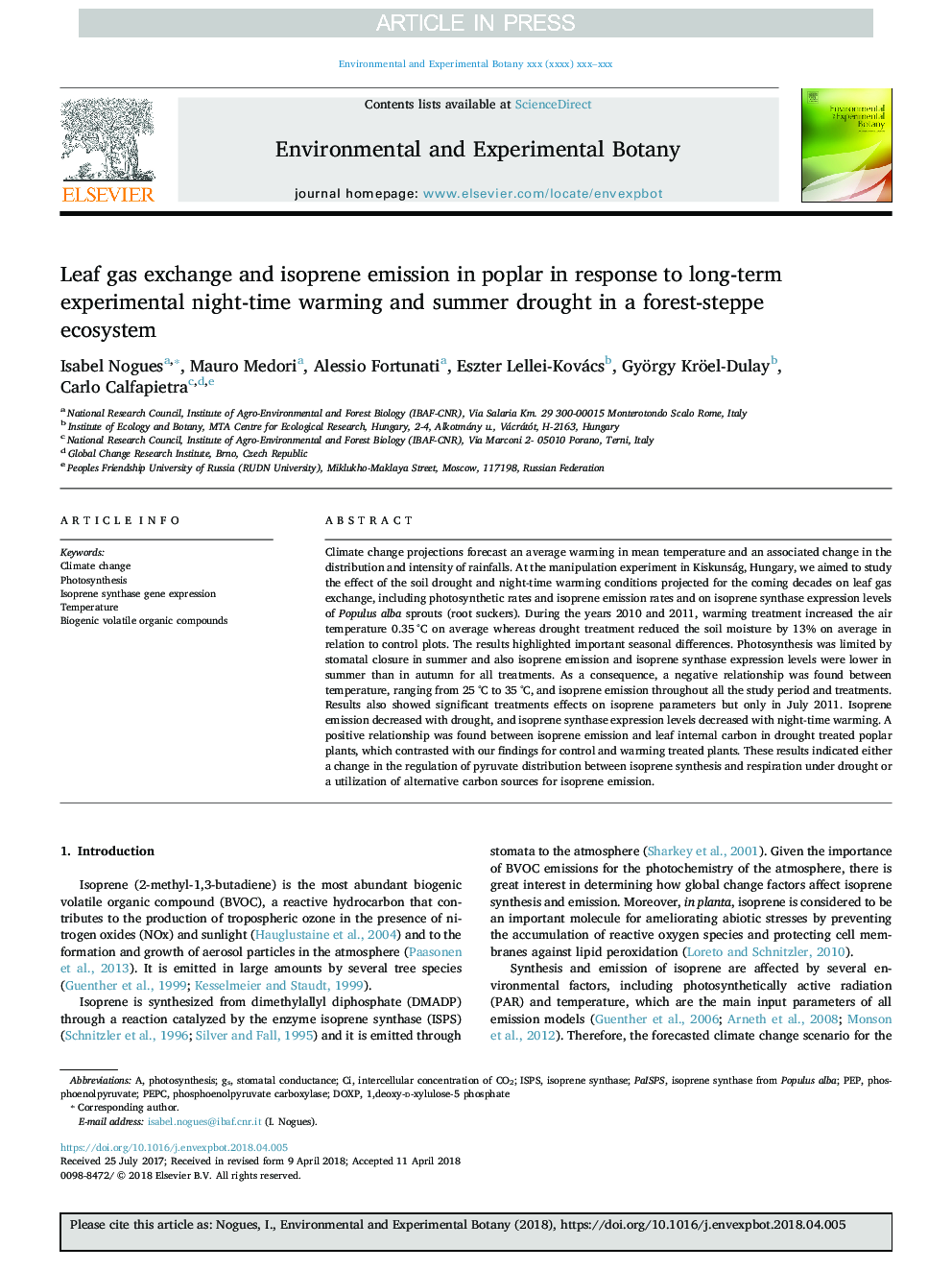| Article ID | Journal | Published Year | Pages | File Type |
|---|---|---|---|---|
| 8886947 | Environmental and Experimental Botany | 2018 | 8 Pages |
Abstract
Climate change projections forecast an average warming in mean temperature and an associated change in the distribution and intensity of rainfalls. At the manipulation experiment in Kiskunság, Hungary, we aimed to study the effect of the soil drought and night-time warming conditions projected for the coming decades on leaf gas exchange, including photosynthetic rates and isoprene emission rates and on isoprene synthase expression levels of Populus alba sprouts (root suckers). During the years 2010 and 2011, warming treatment increased the air temperature 0.35â¯Â°C on average whereas drought treatment reduced the soil moisture by 13% on average in relation to control plots. The results highlighted important seasonal differences. Photosynthesis was limited by stomatal closure in summer and also isoprene emission and isoprene synthase expression levels were lower in summer than in autumn for all treatments. As a consequence, a negative relationship was found between temperature, ranging from 25â¯Â°C to 35â¯Â°C, and isoprene emission throughout all the study period and treatments. Results also showed significant treatments effects on isoprene parameters but only in July 2011. Isoprene emission decreased with drought, and isoprene synthase expression levels decreased with night-time warming. A positive relationship was found between isoprene emission and leaf internal carbon in drought treated poplar plants, which contrasted with our findings for control and warming treated plants. These results indicated either a change in the regulation of pyruvate distribution between isoprene synthesis and respiration under drought or a utilization of alternative carbon sources for isoprene emission.
Keywords
Related Topics
Life Sciences
Agricultural and Biological Sciences
Ecology, Evolution, Behavior and Systematics
Authors
Isabel Nogues, Mauro Medori, Alessio Fortunati, Eszter Lellei-Kovács, György Kröel-Dulay, Carlo Calfapietra,
